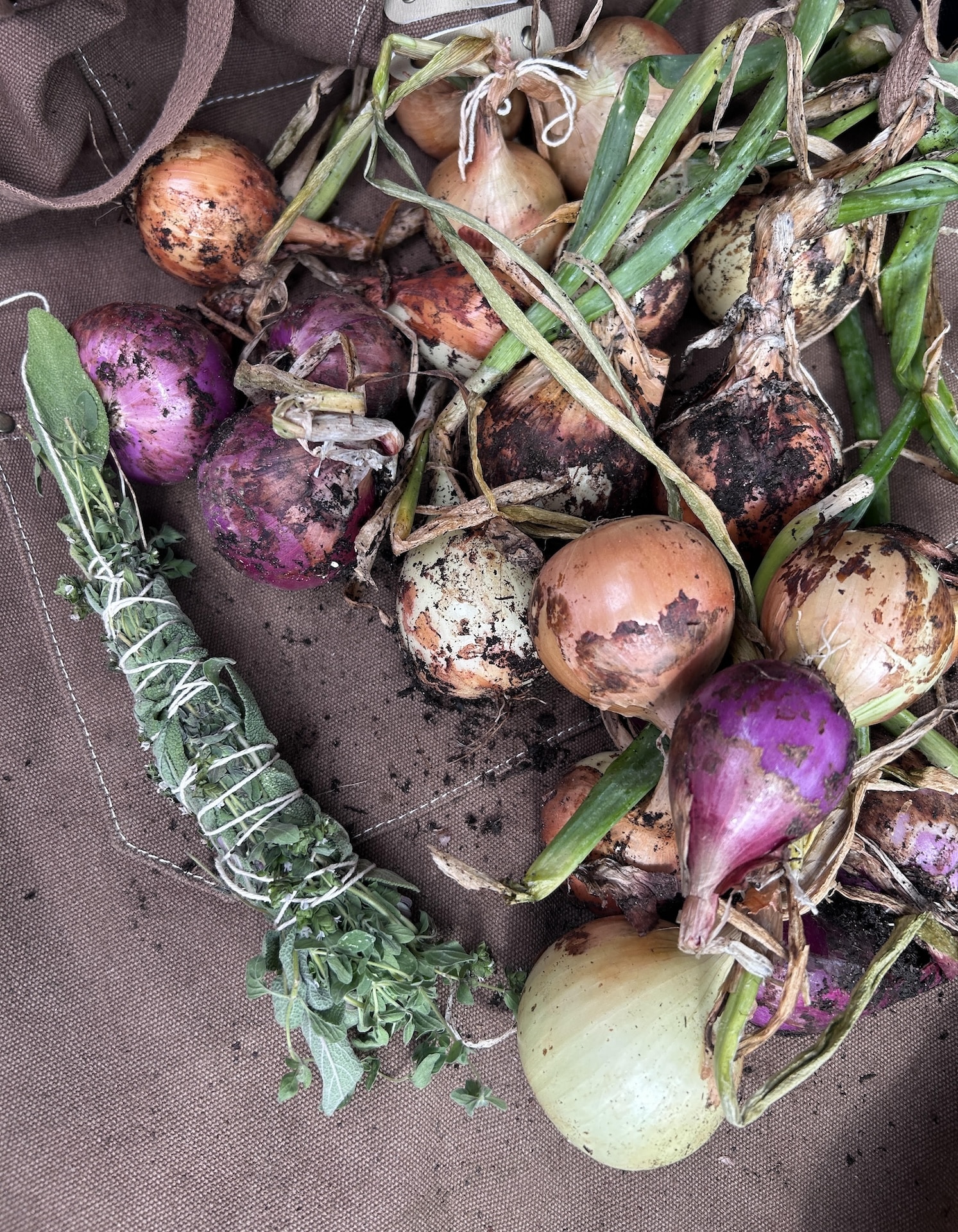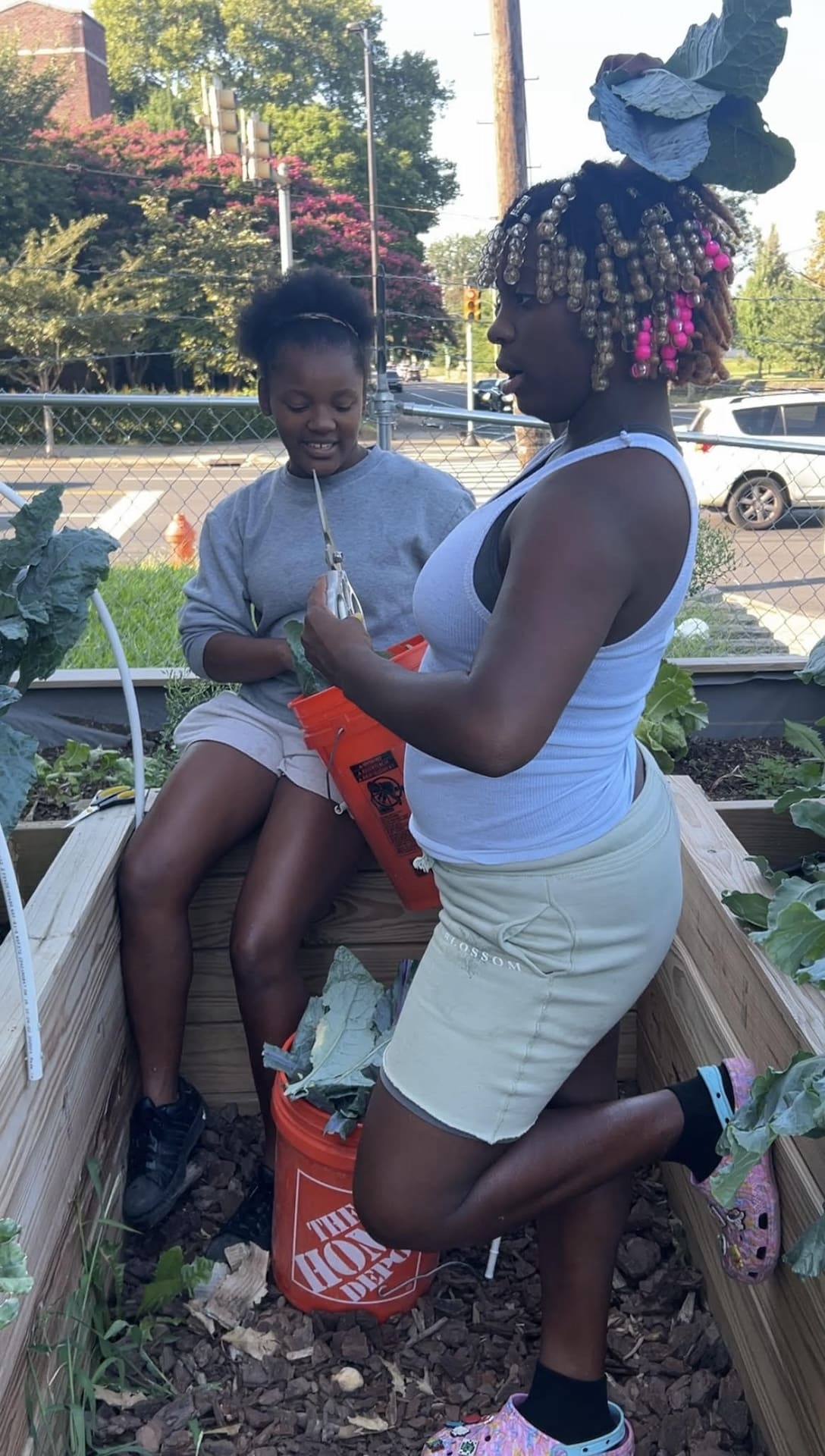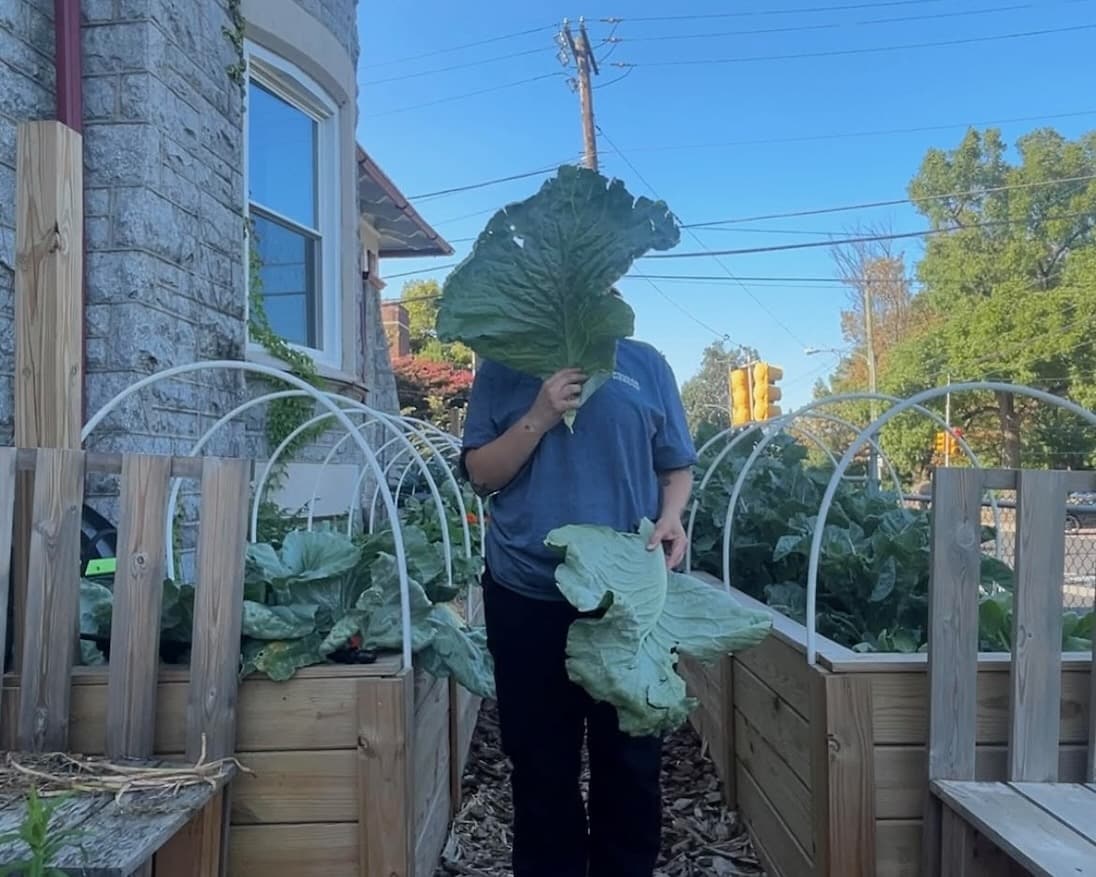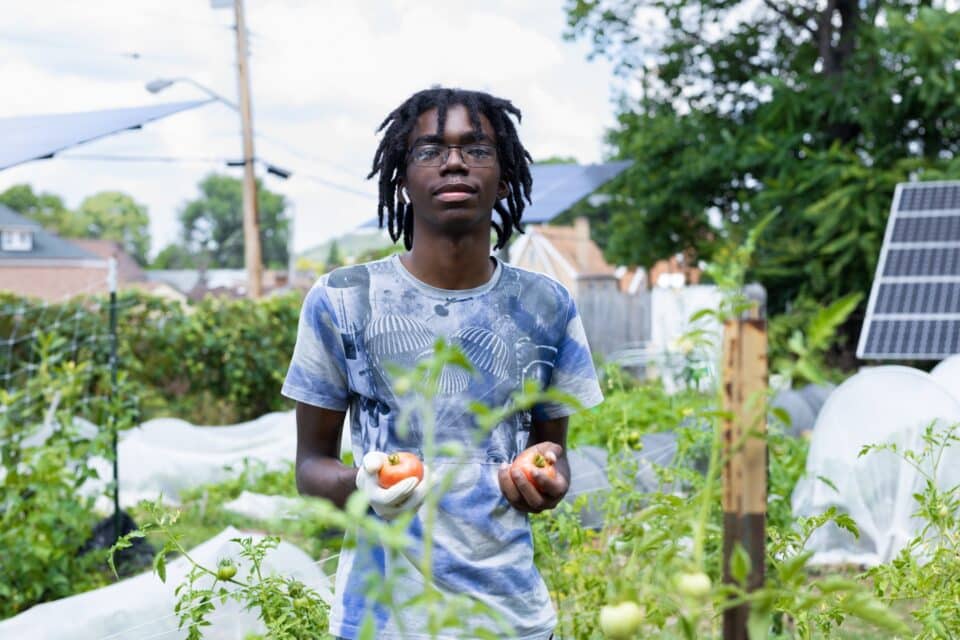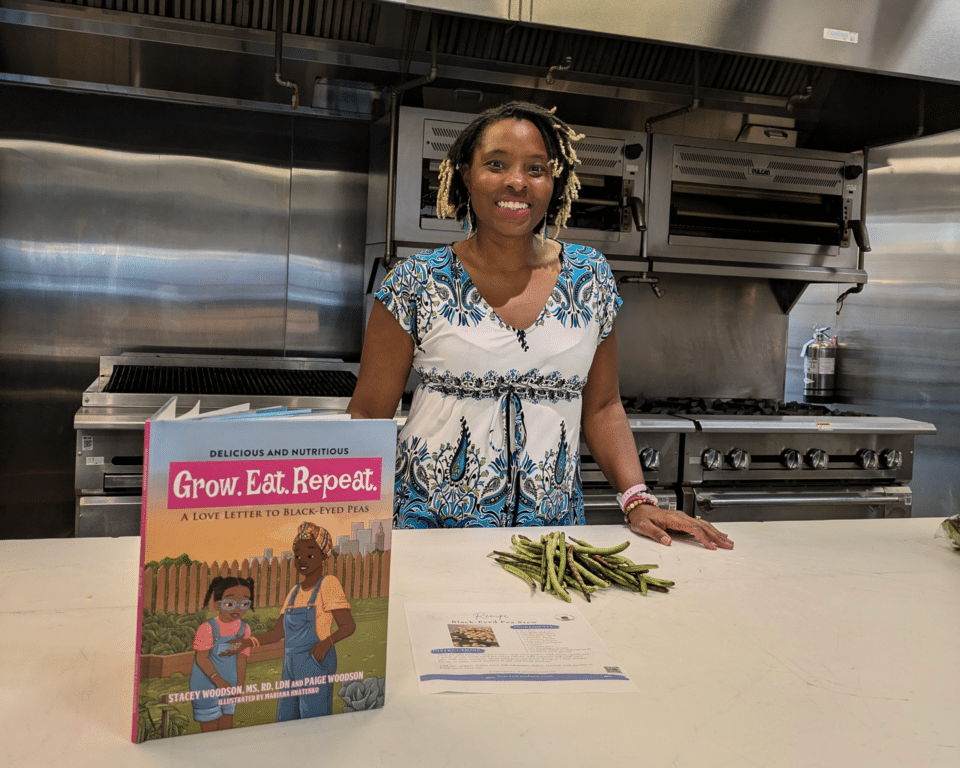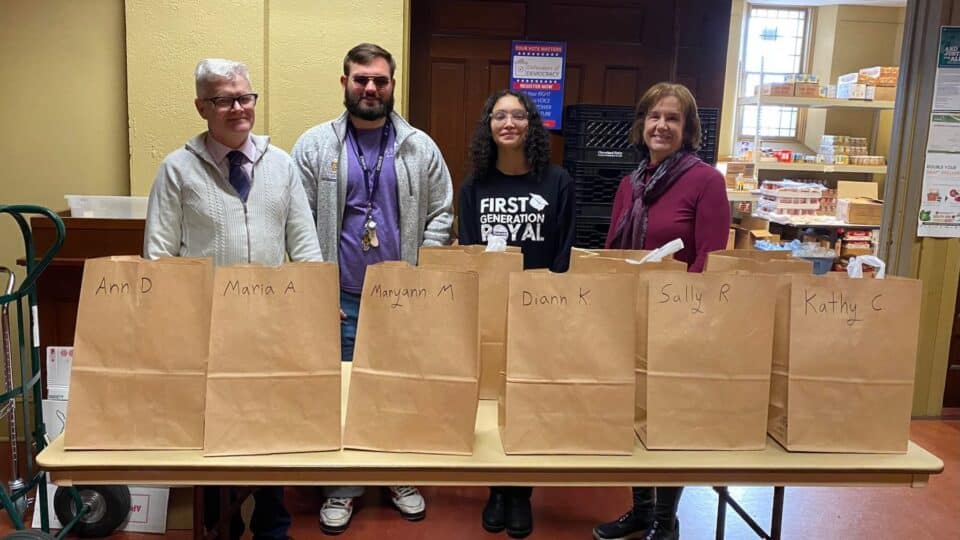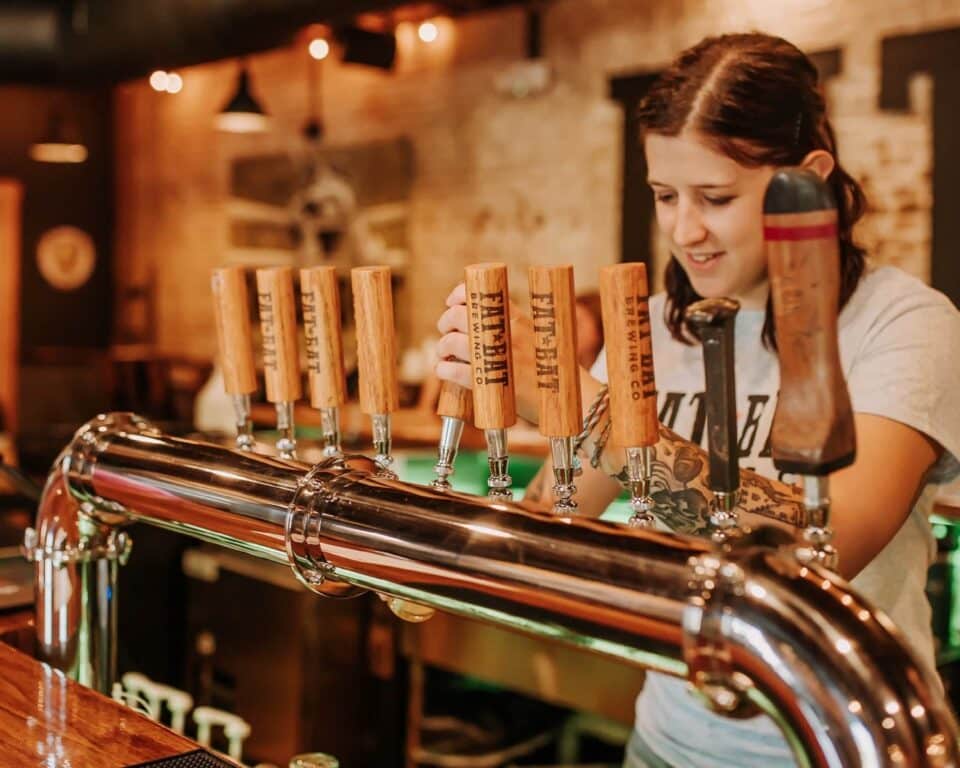Ordinarie Heroes in Philadelphia helps young people effect real change in the world around them with the guiding statement, “I’m enough.” Through holistic programming, teens and young adults gain skills, education, college prep and mentorship. They’re also front-and-center in the organization’s educational farm and garden initiatives, including a mobile food pantry that serves local neighbors with fresh produce and goods and an upcoming farm stand.
We spoke with Ash Meadows, Program Coordinator of the S.O.W. Hope Educational Farm where the young people of Ordinarie Heroes roll up their sleeves, tend to the earth and create magic. She told us about the organization’s history, programming and vision for the future.
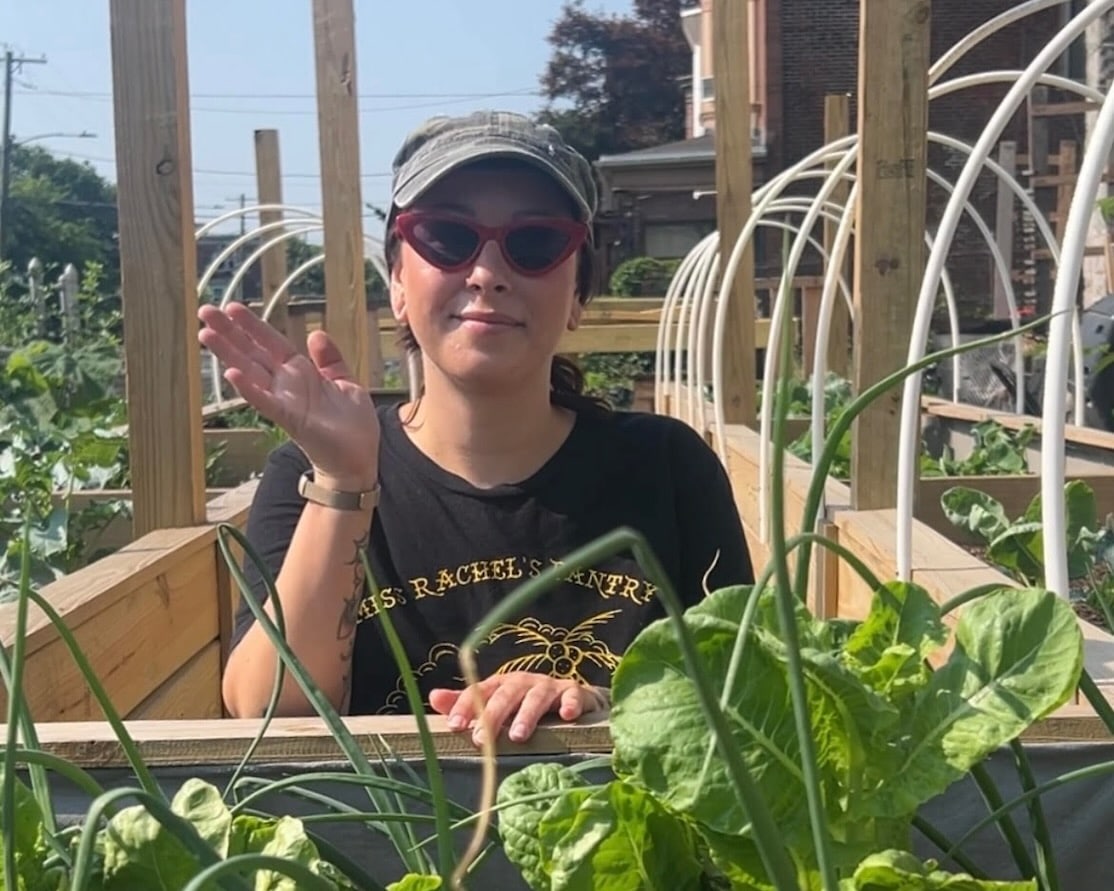
Ash Meadows
PA Eats: Can you give us some background on the organization? How was it started, etc?
Ash Meadows: I’ve been with Ordinarie Heroes for about a year now. I connected through a friend who teaches photography and videography workshops.
Ron Toles, the Ordinarie Heroes Executive Director founded it about 9 years ago. The sole purpose was to be of service to underserved communities in Philadelphia and, as time went on, he’s narrowed the focus to North Philadelphia, as it has one of the highest poverty rates in the city, if not the whole state. The priority was to create resources where resources did not exist. The group he has aimed to help the most is Black and brown youth in North Philadelphia.
He grew up without resources, so he knew first-hand what the community needed. First and foremost, mentors that the youth could come to in times of challenge, especially as it comes to education. Philadelphia public education is very much underfunded and these kids are underserved.
It’s not only about providing education, but access to college and creative ways to figure out what their passion is and what they want to do instead of just focusing on surviving day to day. They’re figuring out who they are with a community to support that.
Over the years, OH has expanded so much because this is a really complex need for this city and for the world: community. It exists on varying levels. We’re trying to create a one-stop-shop for community; for people to come and not only feel safe, but also inspired.
It’s rough when you’re a teenager and you have a lot of time on your hands, so we’re hoping that by filling their calendars, we’re keeping them engaged.
Can you tell us about the farm and food side of things?
S.O.W.’s first onion harvest
S.O.W. Hope is an outdoor garden and we have an indoor grow space in the House of Hope church. The S.O.W. in our name stands for strangers, orphans and widows. We wanted our name to symbolize the people we serve and support! We are here for everyone but, most importantly, those who need love, nutrients and a community.
The beginning of the garden came from the realization that access to fresh food was very limited in the area and in Philadelphia as a whole, and acknowledging how a lack of fresh food and education on health and wellness is affecting people long term and in their daily lives. To have a well balanced approach, we had to think about what people are eating and the relationship between the body and the environment. It’s a multi tier program.
We’re focusing on youth and looking to expand to veterans and seniors and, really, anyone who wants to get involved in this practice. Right now we’re working with high school and junior high school ages. The program is about 50% education and 50% field work. Half the time, we’re out in the garden, tending to the garden, building things and doing manual labor to upkeep the space. It’s an opportunity for them to have a one-to-one relationship with their environment.
The other half of the program is about giving them the opportunity to know why we’re even doing this. When you ask them questions about what they’re growing, the answer is often, “I don’t eat vegetables.” We’re focused on redefining and remaking what our relationship is with food. It’s so complicated, deep and personal, and it takes deep building of rapport with the kids so they’re safe to explore, maybe even dig up and eat raw veggies. It creates a different relationship when they’re growing the food, themselves.
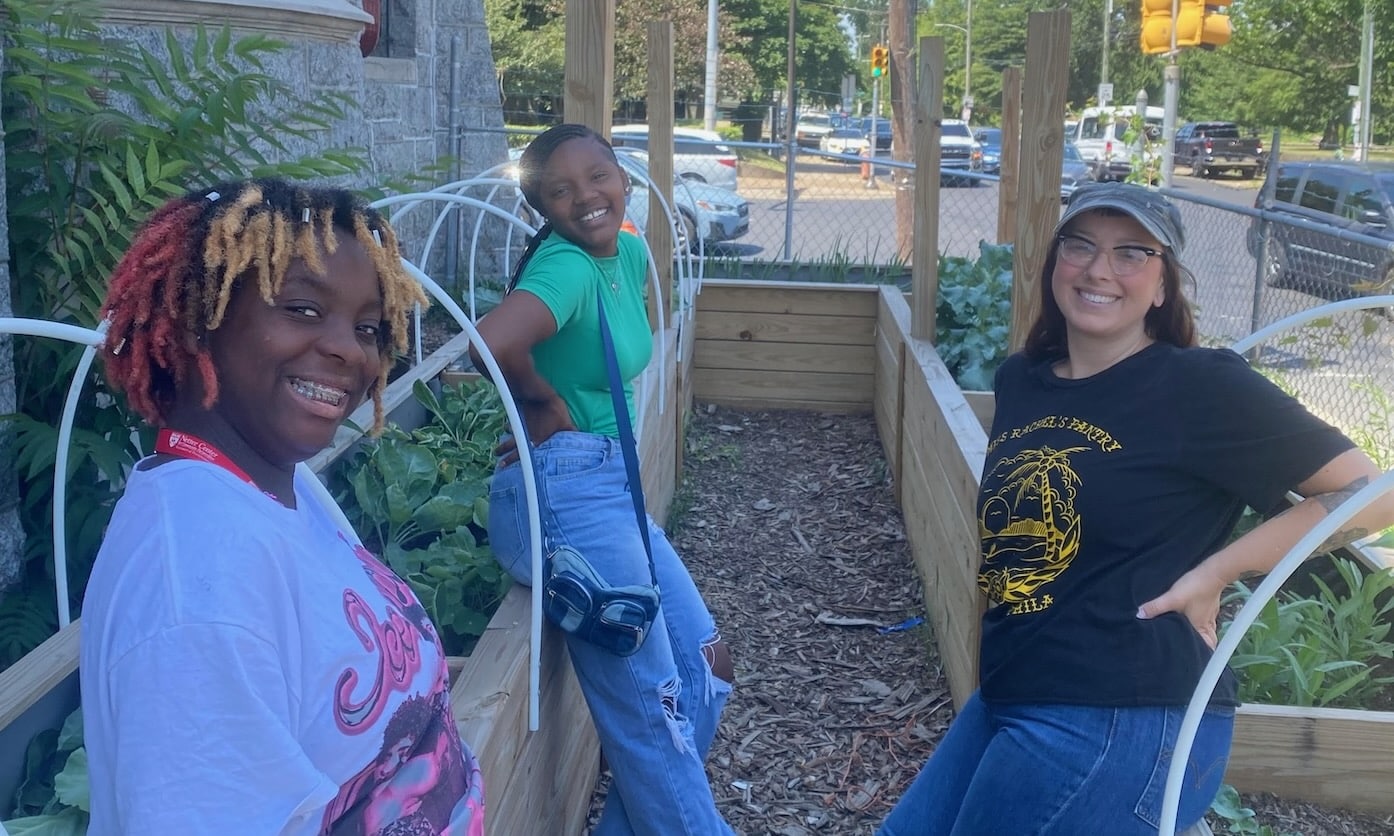
Farm interns Promise and Symone with Ash Meadows
Then, there’s an activism piece. True liberation comes from health and wellness, having access and being able to sustain yourself with knowledge of the land. The connection with the pantry is creating this space with fresh food, but knowing that not everyone has the ability to get to use it. So we wanted to reach people, even if they can’t come to us directly, so they can have fresh, organic produce into their pantry, monthly.
We’re currently building our infrastructure and expanding to have a little farmers market with produce stands next year. There will be an abundance of produce. We hope to have the market open once a week for free produce.
This year, the priority was building the farm and ensuring we have the resources for the farm and to pay young people to work on the farm. We’re also connecting them with different farms in the area and the educations available there.
Right now, we’re working with an organization who gave us a grant to pay two farm interns for about 10 hours a week of their time. This is more of an incentive to give them ownership and a reason to show up, even if they don’t like vegetables. We’re hoping to expand that number to 5 to 10 interns for next year. A big thing for S.O.W. Hope is creating jobs surrounding urban farming.
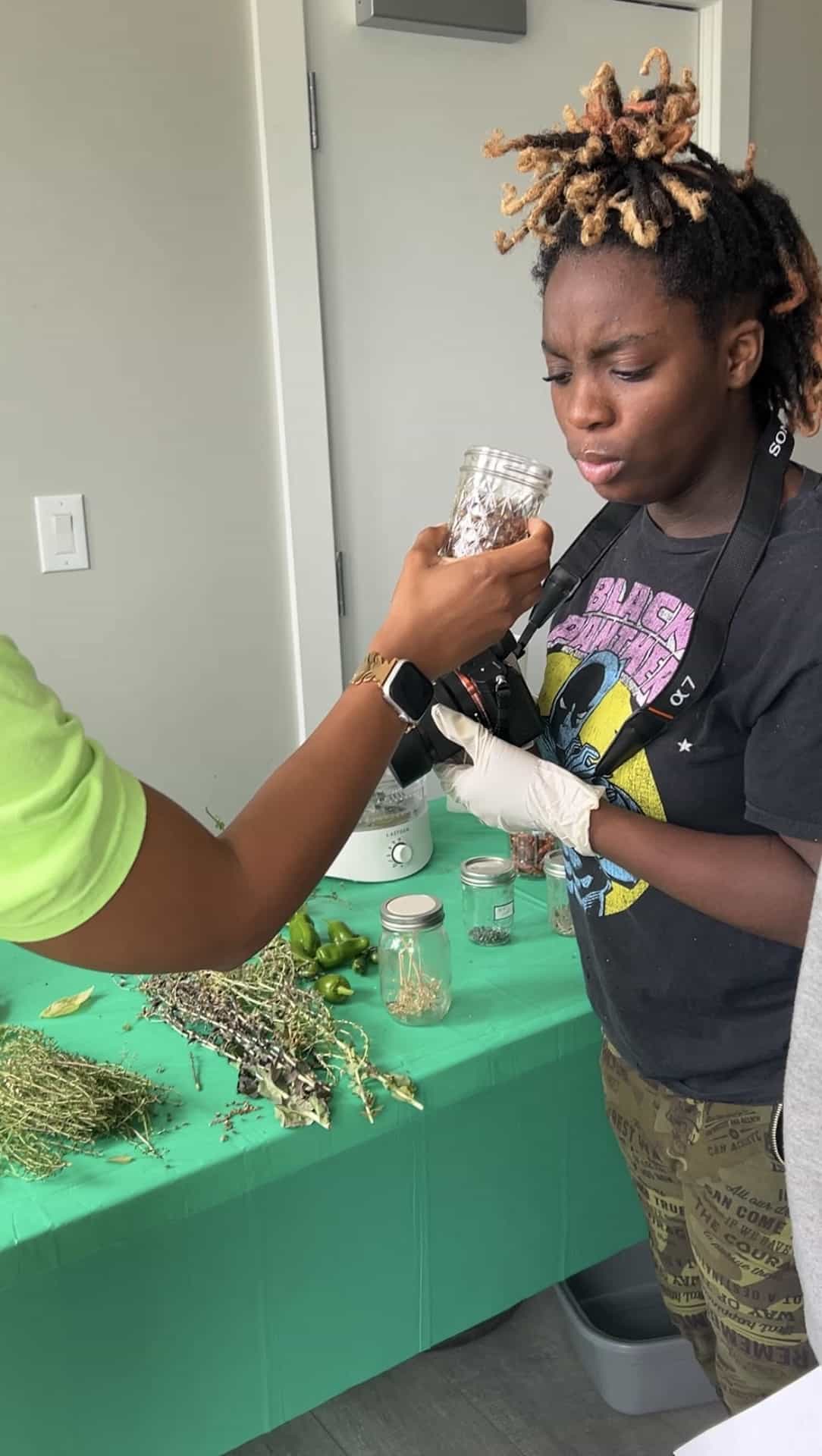
Promise smelling a dried herbal concoction she made
What do young people like about gardening at S.O.W. Hope?
Giving them agency to design things is really fun. We just built an irrigation system. I had them draw a map of the garden and an irrigation system with one source of water for all of the plants. They really engage and feel a lot of ownership when they create something abstract and see it come to life.
They haven’t seen anything grow from seed yet. We started the garden this year with partially grown plants. Harvesting is really fun. And seeing things from the grocery store on the plant. And general plant recognition. I quiz them when they come in.
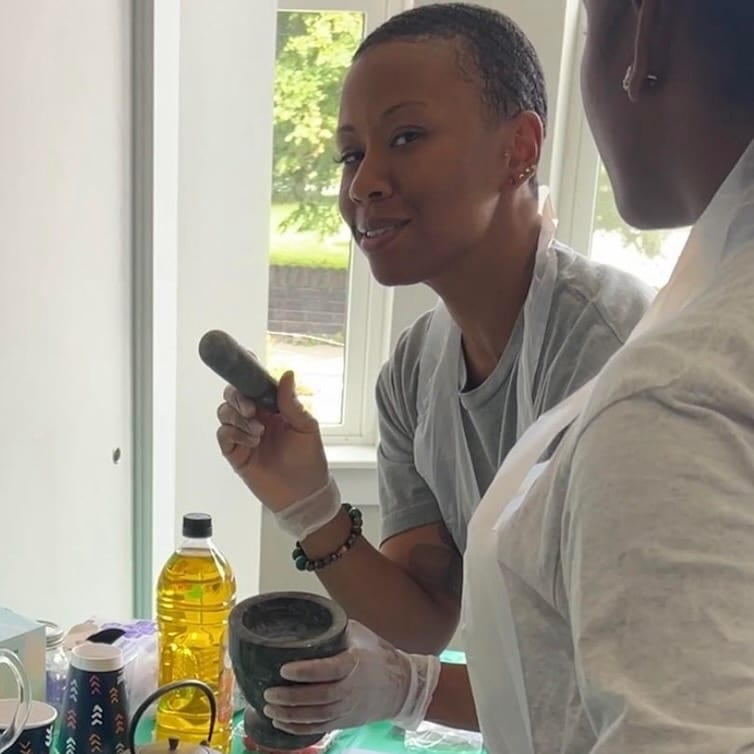
Pamia, founder of Black Girls with Green Thumbs, hosting a workshop
We also work with Black Girls with Green Thumbs. They share homestead practices and sustainable practices through urban gardening with an emphasis on taking fresh food and teaching kids how to cook and prepare it.
How does the food distribution of the mobile pantry actually play out?
We have a big van converted into a pantry. Three to five people will man the van. We have a list of recipients who have signed up through the website. We just let them know a week or two in advance that we’re coming by.
We’re working on a system for a menu. Right now, it’s prepackaged, but it’s going to be more customizable, especially with a lot more produce coming in. So people will be able to choose what produce is in their basket.
Once a month, we drive the van around and pass out food and talk to the community. It’s a really fun day.
Symone and Promise harvesting kale
What changes, trends or conversations are you seeing in the food insecurity space?
One of the questions I ask the girls when they first started this internship, and this is a heavy question, is, “How has white supremacy contributed to food injustice?”
They had a really hard time coming up with a single answer. But then, their response was one word, written down: “redlining.” This opened up a whole conversation about redlining and how it’s still happening. It might have different names now, but it’s still happening, and so blatantly in Philadelphia. I’ve lived in other big cities, and the difference is so stark from city to city. In Philadelphia, you can be in a really nice neighborhood with grocers, food co-ops and farmers markets, and then you drive a few miles and there’s nothing. It’s heartbreaking to see the imbalance there, and it’s up to the community to fix it. We can’t rely on the government to come in. We have to put in all that work before the city will even come in and look.
It’s bleak and sad and frustrating, but there’s a lot of room for optimism and opportunity for us as a community to come together, plant wildflowers, have edible plants everywhere, and so on. I think we can come together and do this.
The bigger questions are, ‘How is classicism and white supremacy playing a huge role in who has access to food, and what are we as a community doing about it? How are we contributing to a greener Philadelphia and a healthier Philadelphia?’
What are the organization’s hopes and goals for the future — short or longer term?
Our goals are to see the garden expand and the farm expand. We’d like more kids to get paid to tend to the farm. And we’re hoping to purchase other lots in the city to green-ify that space a little more and make seeing farms more normal.
Another goal is to connect all our farms in Philly. There are a LOT of farms in North Philly who have been doing what we’re doing for many years. We’re all kind of on separate islands, and we could take over if we all worked together. We could make a really, really positive impact in Philly and create a greater community.
What help is needed?
As a non-profit, we’re always looking for support with funding, of course. All of our programs are growing and we, as a non-profit, are growing. As we grow, we need more resources.
As far as volunteers and support, there’s always room for more mentors and people who want to get involved in being of service to the youth in North Philadelphia.
As far as the garden, it’s an open call. I openly give the code to people because it’s a space for people to just come and sit and read a book if they want. Whether you volunteer, hang out or learn, it’s very, very open. As far as consistent garden volunteer work, that will be needed next spring, for sure.
Ash Meadows with cabbage leaves
Visit the Ordinarie Heroes website and Facebook and Instagram pages to learn more about its impactful programming. There are many ways to support and connect with the organization’s holistic approach to building connections, character and progress. Find Ordinarie Heroes at 828 S. Alden St., Philadelphia and S.O.W. Hope Educational Farm at 1300 West Hunting Park Ave., Philadelphia; (215) 385-5135.
- Photos: Ordinarie Heroes
